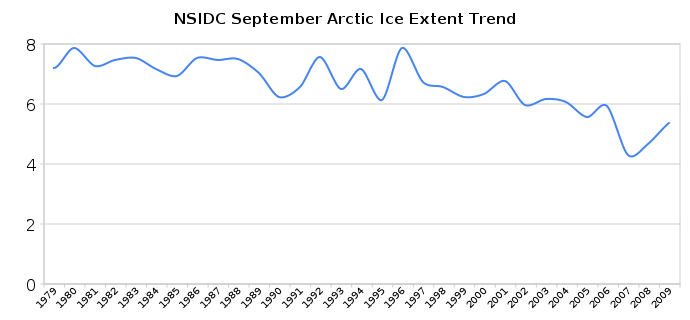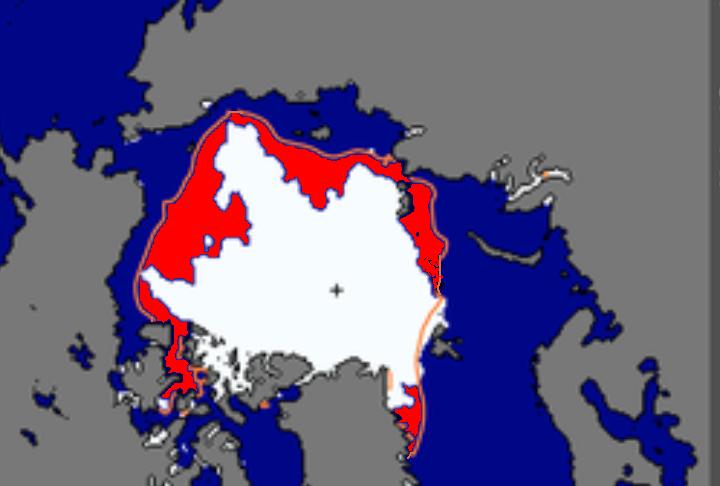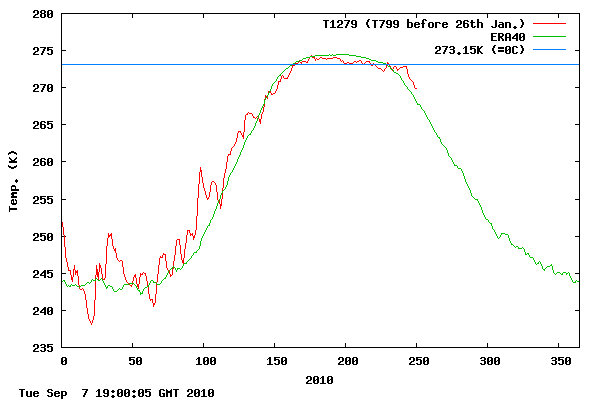Linear trend maps indicate that since the start of the satellite record, summer ice extent is on the decline.
Does this mean that we are headed for an ice-free Arctic?
Probably not. First, ice extent is at 75% of the 30 year NSIDC mean. That is a long ways away from zero.
But more importantly, what is driving the reduction in extent is wind, which is compacting the ice towards the pole – where temperatures are colder and the melt season is shorter.
[youtube=http://www.youtube.com/watch?v=mjTRJctrxwo]
This weather pattern makes it more difficult to achieve an ice free Arctic. Thicker ice near the pole in mid-September has almost no chance of melting out.
Conclusion : It is a mistake to extrapolate an ice-free Arctic based on recent weather patterns. An ice-free Arctic would require much warmer summers north of 80N, and spreading of the ice. There is no indication either is happening.





Speaking of the weather, since the pause in the “melt” in late August, the extent has been shrinking by about 50,000 km²/day.
Sep 1 — 5.332 mil km²
Sep 7 — 5.027 mil km²
If the weather doesn’t change, by Sep 13 it could be down to 4.7 mil km². If things don’t change soon, we’ll never hear the end of it, at least not till next September.
That is true. I expect that area won’t decrease much more though, because there isn’t much melting going on any more.
Winds consistently compacting ice-masses in 90-north regions from 1979 would seem a geophysical if not climactic phenomenon in themselves. If cyclical, thirty-two years reinforcement is of quite long duration; if not cyclical, yet presumed non-linear, what forces could be driving this anomaly?
A one-way effect of this long-lasting nature should have some historical provenance… has any research identified similar occasions from, say, the Little Ice Age peak c. 1715, coincident with ending a 70-year Maunder Minimum, or with shorter Dalton chill-phases attributable to solar irradiation influences? Or could even thirty years be just an extended random fluctuation, an act of Boreal fate?
So with the relation between Arctic and Antarctic ice if the Arctic is ice free does that mean there’ll be ice skating on Ipanema Beach, and the Copacabana, in Rio from South Pole ice growing so large? 😉